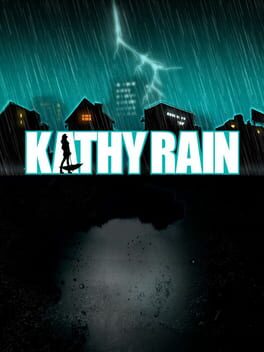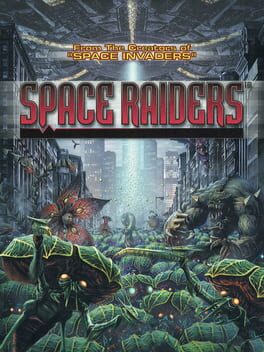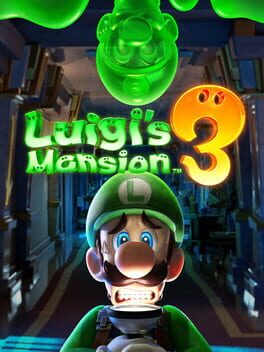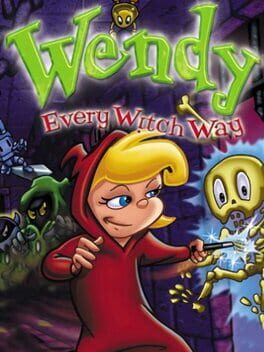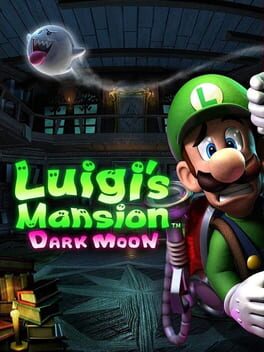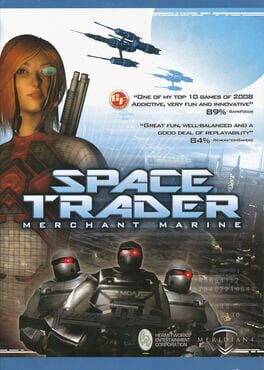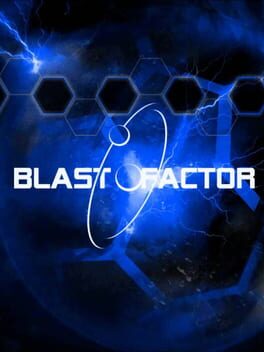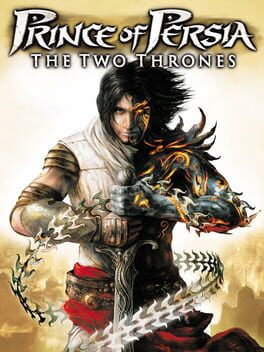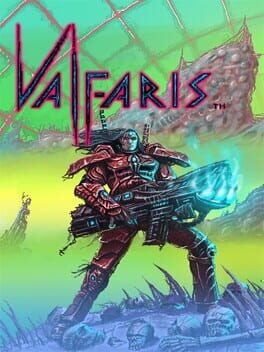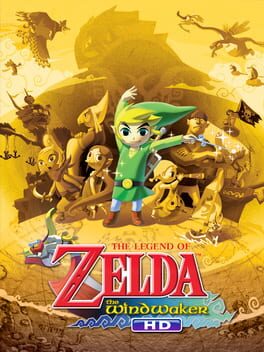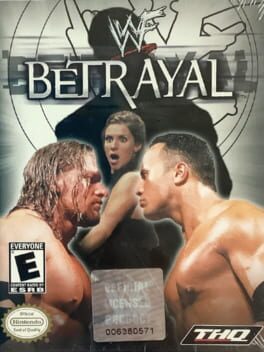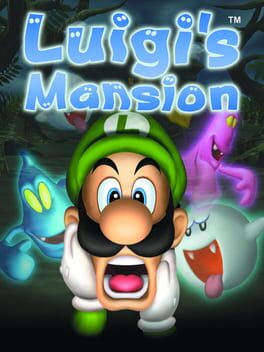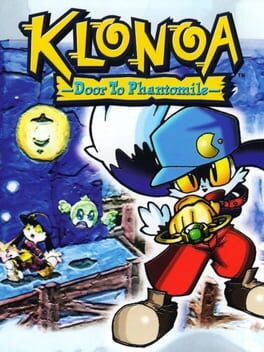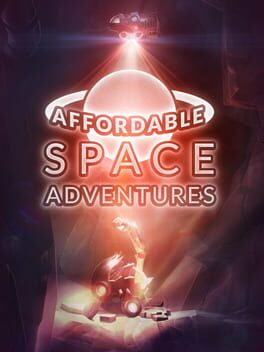MVK
2016
This is a perfectly acceptable point and click adventure game. A little too much backtracking and towards the end the puzzles start asking a bit too much out of you, but despite the gameplay and writing hurdles this manages to be entertaining, probably also because of how short it is. I mean it, the game can't wait to end, one second you're doing normal investigation stuff and suddenly you're thrown into the climax, then the ending happens and it kinda feels like the writer got a little bored and just put in the bare minimum
This is a game that I played only because it was given away for free on Steam at some point, and I guess I didn't mind spending the 0 money that was required for me to play it. Check it out if you already have it and you like point and click adventure games I guess.
On a final note, the sheriff character's voice constantly sounded familiar to me but I couldn't put my finger on who the VA was. I checked the credits specifically for this, and he was played by Mike Pollock, who voices Dr Eggman. I guess there's my reason to remember this game for more than a day.
This is a game that I played only because it was given away for free on Steam at some point, and I guess I didn't mind spending the 0 money that was required for me to play it. Check it out if you already have it and you like point and click adventure games I guess.
On a final note, the sheriff character's voice constantly sounded familiar to me but I couldn't put my finger on who the VA was. I checked the credits specifically for this, and he was played by Mike Pollock, who voices Dr Eggman. I guess there's my reason to remember this game for more than a day.
2002
The early-mid 2000s were a fascinating (and scary) time for arcade games. There was no real space for them anymore, as audiences almost universally saw them as dated and quaint compared to the longer, more complex games you could find on home consoles by then, so they had three options: re-releases through collections, trying their luck on the GBA, or the dreaded reboots. Space Raiders takes the latter, and has it even harder than most games of that time (Altered Beast, Final Fight Streetwise, Maximo, just to name a few) because there just isn't much to take from its original inspiration. Despite that, Space Raiders is actually more faithful to Space Invaders than it probably should've been.
The concept of taking Space Invaders and putting it in the context of controlling a human character who is shooting with their guns at aliens in (mostly) urban settings is really bizarre, but the actual gameplay is pretty much beefed up Space Invaders: you move only left or right, you dodge the enemies that are coming at you, you shoot them. There's some things that spice it up a bit, like having power-ups, bosses, and a somewhat interesting combo mechanic, but this is pretty much the game. It lasts about 90 minutes if even that, 99% of the story is thankfully just in the intro video, and the game does its job competently enough to be entertaining for as long as it lasts. Its original release in Japan as a Simple 2000 game (if you don't know what these are, please look them up, you'll discover a whole new world) explains its very barebones gameplay and content, but the game is so simplistic and barebones that there isn't much reason to go back to it once finished, if anything towards the end it actually feels like it's dragging, which is obviously not a good thing for a 90 minute long game.
Would I recommend Space Raiders? Kinda, I guess. If you're into arcade games this is inoffensive, but the main reason to check this one out would be for its bizarre existence alone. It's not as bad as a Bomberman Act Zero and it's not as pointless as a Prince of Persia 2008, so by the standards of videogame reboots this one might actually be in the better half of them, as sad as that is.
The concept of taking Space Invaders and putting it in the context of controlling a human character who is shooting with their guns at aliens in (mostly) urban settings is really bizarre, but the actual gameplay is pretty much beefed up Space Invaders: you move only left or right, you dodge the enemies that are coming at you, you shoot them. There's some things that spice it up a bit, like having power-ups, bosses, and a somewhat interesting combo mechanic, but this is pretty much the game. It lasts about 90 minutes if even that, 99% of the story is thankfully just in the intro video, and the game does its job competently enough to be entertaining for as long as it lasts. Its original release in Japan as a Simple 2000 game (if you don't know what these are, please look them up, you'll discover a whole new world) explains its very barebones gameplay and content, but the game is so simplistic and barebones that there isn't much reason to go back to it once finished, if anything towards the end it actually feels like it's dragging, which is obviously not a good thing for a 90 minute long game.
Would I recommend Space Raiders? Kinda, I guess. If you're into arcade games this is inoffensive, but the main reason to check this one out would be for its bizarre existence alone. It's not as bad as a Bomberman Act Zero and it's not as pointless as a Prince of Persia 2008, so by the standards of videogame reboots this one might actually be in the better half of them, as sad as that is.
2019
Next Level Games takes another crack at the Luigi's Mansion series, with mostly successful results. The pacing is greatly improved over 2, the game generally doesn't overstay its welcome and it's constantly throwing different things at you (the 17 floors/levels are all wildly different in theme and all have something worth remembering them for, making it more similar to the first one in this regard).
The inclusion of Gooigi was great as it allowed for really interesting puzzles and even a couple of really good bosses, the second to last one being my personal favourite. Having to manage both Luigis at the same time is something the game does fairly often and it's always clever.
Clever is a good way to describe the entire game, as everything here has a very specific purpose and there's very little in terms of filler or padding. Really the only issues I have with the game are that there's things I wish it did, like having a bit more backtracking (considering how interesting every level this time around I'm surprised it only happens around 3-4 times) and generally the game not having a lot of unlockables, meaning that unless you're going for 100% there's not much reason to explore this game. Which is a shame as this is one of those games where it's really fun to interact with everything and see every nook and cranny of every room.
Also kudos to the developers for managing to make a game this good looking on Switch while also having a physics engine running in the background, which I thought really enhanced the game. It's just really satisfying to vacuum objects and throwing stuff at stuff, I could do that for hours.
And ranks are back! They're not as interesting as they were in the first one but I'll let that slide. All in all, this game is very much a worthwhile experience for anybody who is looking for a unique game to play. Very interested to see Next Level Games do more with the series in the future, which I imagine will happen eventually
The inclusion of Gooigi was great as it allowed for really interesting puzzles and even a couple of really good bosses, the second to last one being my personal favourite. Having to manage both Luigis at the same time is something the game does fairly often and it's always clever.
Clever is a good way to describe the entire game, as everything here has a very specific purpose and there's very little in terms of filler or padding. Really the only issues I have with the game are that there's things I wish it did, like having a bit more backtracking (considering how interesting every level this time around I'm surprised it only happens around 3-4 times) and generally the game not having a lot of unlockables, meaning that unless you're going for 100% there's not much reason to explore this game. Which is a shame as this is one of those games where it's really fun to interact with everything and see every nook and cranny of every room.
Also kudos to the developers for managing to make a game this good looking on Switch while also having a physics engine running in the background, which I thought really enhanced the game. It's just really satisfying to vacuum objects and throwing stuff at stuff, I could do that for hours.
And ranks are back! They're not as interesting as they were in the first one but I'll let that slide. All in all, this game is very much a worthwhile experience for anybody who is looking for a unique game to play. Very interested to see Next Level Games do more with the series in the future, which I imagine will happen eventually
Really fun and unique platformer, I wasn't expecting to like this game as much as I did considering it's from WayForward, a developer I'm usually not particularly fond of. This is one of those games where the gimmick (changing gravity) is the entire point of it, and it is a gimmick that is used to great effect, they really go far and beyond with the usage of it. After a while it becomes second nature to go through a level upside down which I consider really impressive considering how disorienting it could've been. Only two problems I had are some occasionally sloppy level design and the really short length, even considering that this is a Game Boy Color game.
It may feel more like a proof of concept of a great game than a great game in itself, but you can't go wrong with spending 30-40 minutes with this game.
Also I didn't know TDK used to publish games for a bit, I just remember seeing their logo because my dad bought tons of TDK blank VHS tapes. The things you learn by playing forgotten kids games from 20 years ago
It may feel more like a proof of concept of a great game than a great game in itself, but you can't go wrong with spending 30-40 minutes with this game.
Also I didn't know TDK used to publish games for a bit, I just remember seeing their logo because my dad bought tons of TDK blank VHS tapes. The things you learn by playing forgotten kids games from 20 years ago
I'm very conflicted on Luigi's Mansion 2. It is a general improvement on everything the first game did, but it also has a ton more useless backtracking which I thought even the first game had too much of. Combine that with the fact that the 3DS wasn't the best console to put this sort of game on and you get kind of a mixed bag.
All in all though I think I prefer this one over the first one, mainly because it's a lot more interesting to play and even explore half the time. Too bad that a lot of the charm of the first one is gone but it was inevitable since Luigi's Mansion is now an IP and not just a one-off game. Either way I commend the developer for trying to do something different with the idea and expand on it, even though it not always works.
I have to say though, why was there no rank here? I get that money has another purpose in theory, but it would've been nice to keep that in to give you an excuse to still pick up the money even after you completely upgrade. Can't have my cake and eat it too I guess.
All in all though I think I prefer this one over the first one, mainly because it's a lot more interesting to play and even explore half the time. Too bad that a lot of the charm of the first one is gone but it was inevitable since Luigi's Mansion is now an IP and not just a one-off game. Either way I commend the developer for trying to do something different with the idea and expand on it, even though it not always works.
I have to say though, why was there no rank here? I get that money has another purpose in theory, but it would've been nice to keep that in to give you an excuse to still pick up the money even after you completely upgrade. Can't have my cake and eat it too I guess.
2017
Chances are that you've heard of, seen, or played Everybody's Golf in your life. Unless you're American, then you'd know it as Hot Shots Golf (YIKES).
Either way, you're probably familiar with the gameplay formula here: arcadey golf that is simple enough in theory but complicated enough in application to be really engaging for hours. What's different here compared to the other games in the series (which at least had numbers or subtitles, so I can recognize which ones they are) isn't the gameplay itself but what's around it.
Namely the character building. You now create your character (or multiple of them if you so desire, the creation suite is really robust) and it will get better at specific things gradually, and depending on what equipment you use and how you play. This actually adds a lot to the game as every player can come up with their own solutions and perfect plays, while refining their own skills with the control system and physics.
But that's not all, as Everybody's Golf fancies itself a great "fucking around" game. You can fish, which comes with its own leveling and equipment, roam around various camps either on foot or with various types of carts, play online, do all these things in online courses, exchange profiles, and so on. It even comes up with a meaty single player experience if you don't desire to pay for PS+ (which I don't).
Everybody's Golf is a game that gives you a lot to sink your teeth into, while still doing it with style and remembering that it's all supposed to be chill and fun. Can't really ask anything more out of this game, which goes above and beyond giving players reasons to come back time and time again, making it a great purchase for anyone even just tangentially interested in golf games (or just fun arcade sports games).
Either way, you're probably familiar with the gameplay formula here: arcadey golf that is simple enough in theory but complicated enough in application to be really engaging for hours. What's different here compared to the other games in the series (which at least had numbers or subtitles, so I can recognize which ones they are) isn't the gameplay itself but what's around it.
Namely the character building. You now create your character (or multiple of them if you so desire, the creation suite is really robust) and it will get better at specific things gradually, and depending on what equipment you use and how you play. This actually adds a lot to the game as every player can come up with their own solutions and perfect plays, while refining their own skills with the control system and physics.
But that's not all, as Everybody's Golf fancies itself a great "fucking around" game. You can fish, which comes with its own leveling and equipment, roam around various camps either on foot or with various types of carts, play online, do all these things in online courses, exchange profiles, and so on. It even comes up with a meaty single player experience if you don't desire to pay for PS+ (which I don't).
Everybody's Golf is a game that gives you a lot to sink your teeth into, while still doing it with style and remembering that it's all supposed to be chill and fun. Can't really ask anything more out of this game, which goes above and beyond giving players reasons to come back time and time again, making it a great purchase for anyone even just tangentially interested in golf games (or just fun arcade sports games).
I'm an "idea guy" when it comes to videogames. I see something unusual and I'm more interested in it than the vast majority of high budget games, which have to be overly familiar to make back their immense cost. Which explains why I at some point in my life decided to buy this game, which was released in 2008 but you could swear is at least a decade older by seeing it in motion.
Space Trader thinks it's a sci-fi game about being a trader, in which you'll have to travel to various planets and sell the goods you bought for a low price elsewhere, hopefully for a good profit (kinda topical), and you'll repeat this process until the end. Problem number 1: the trading makes no sense. There's no rhyme or reason to any of the goods getting higher or lower in price, so pretty quickly you smarten up to the fact that you want to just buy which ever the most costly thing is while also being the one that's trending the lowest, because chances are that even if the price doesn't go up that much by the time you travel elsewhere you will still make a solid 2-3-4-5 million in profits. So essentially risking anything is useless, since you're much more likely to be screwed by the RNG.
Problem 2: there's nothing meaningful to spend money on. They must have realized this, so this game takes a nonsensical arcadey approach: for every chapter (or "challenges" as the game calls them. Doesn't make any sense to me either) you'll have a time limit, in which you'll usually have to either have X amount of money which you'll have to make in the least travels possible, or you'll have to figure out which specific turn of events the game wants you to trigger, which is as exciting as you can imagine.
I wish that's all there was to the gameplay, but someone on the development team decided to add an FPS component to it, which I can imagine was developed by people whose entire experience with FPS games was watching Quake 3 for 5 minutes and winging it. Everything in here truly feels awful, doesn't help that they made about 4 maps in total which you will see a number of times (including Challenge 4, which is made up of three fights in the same map with slightly more enemies each time in a row, glad they included that myself).
So that about describes Space Trader: Merchant Marine. It's a game with a good idea, zero budget (as the suspiciously 2000s public domain-sounding soundtrack will prove, on top of everything else) and about the worst possible execution of that idea possible. It's an awful game, but considering it's about 6 hours long and I must've spent $1 for it, I can't be too upset at it. If anything, its attempts at doing anything are adorable.
Space Trader thinks it's a sci-fi game about being a trader, in which you'll have to travel to various planets and sell the goods you bought for a low price elsewhere, hopefully for a good profit (kinda topical), and you'll repeat this process until the end. Problem number 1: the trading makes no sense. There's no rhyme or reason to any of the goods getting higher or lower in price, so pretty quickly you smarten up to the fact that you want to just buy which ever the most costly thing is while also being the one that's trending the lowest, because chances are that even if the price doesn't go up that much by the time you travel elsewhere you will still make a solid 2-3-4-5 million in profits. So essentially risking anything is useless, since you're much more likely to be screwed by the RNG.
Problem 2: there's nothing meaningful to spend money on. They must have realized this, so this game takes a nonsensical arcadey approach: for every chapter (or "challenges" as the game calls them. Doesn't make any sense to me either) you'll have a time limit, in which you'll usually have to either have X amount of money which you'll have to make in the least travels possible, or you'll have to figure out which specific turn of events the game wants you to trigger, which is as exciting as you can imagine.
I wish that's all there was to the gameplay, but someone on the development team decided to add an FPS component to it, which I can imagine was developed by people whose entire experience with FPS games was watching Quake 3 for 5 minutes and winging it. Everything in here truly feels awful, doesn't help that they made about 4 maps in total which you will see a number of times (including Challenge 4, which is made up of three fights in the same map with slightly more enemies each time in a row, glad they included that myself).
So that about describes Space Trader: Merchant Marine. It's a game with a good idea, zero budget (as the suspiciously 2000s public domain-sounding soundtrack will prove, on top of everything else) and about the worst possible execution of that idea possible. It's an awful game, but considering it's about 6 hours long and I must've spent $1 for it, I can't be too upset at it. If anything, its attempts at doing anything are adorable.
2006
At the time of this writing, PS3's online store was about to get shut down, but after tons of complaints Sony surprisingly caved in, even though it most likely will get shut down anyway sooner rather than later. This made me think to check out (at least some of) the games that are only available on PS3, for personal curiosity and posterity's sake. That was my only real reason to check out Blast Factor, a PS3 launch game that is meant to show off the console's particle effects, the sixaxis motion controls, and the fact that you can now buy videogames digitally. Might seem obvious now, but in 2006 this was a fairly big deal.
Other than being a good showcase for all those things, Blast Factor is actually not half bad as a twin stick shooter either. Its obvious surface-level similarities to Geometry Wars (another launch game, that one on the Xbox 360 instead) will show immediately, but there's nothing wrong in taking something that works and tweaking it a bit. Blast Factor's two tricks are the sixaxis controls and the fact that the main method of destroying enemies aren't specifically your shots as much as the chain explosions that an enemy will create.
Getting it out of the way immediately, obviously the motion controls are very tacky and stick out really badly from the rest of the game. You can slow down time by shaking the controller, which is an action that can be useful but was more of a hindrance because of how sensitive the controls are, leading this action to be triggered by accident more often than not, and you can tilt the field by literally tilting the controller, which is the worst offender. Not only is it a complete pace breaker but there's literally only one enemy that this move will be useful against, which really makes it feel like Sony told the developers to add some motion-based actions at the last second. The mechanic of having to use enemies' blasts to create a chain reaction that can very quickly wipe out entire waves is, instead, pretty fun. It makes the game feel pretty different from most other twin stick shooters as it makes you prioritize enemies based on size and/or positioning, and in general it's a fun gameplay loop.
I wouldn't tell anybody to start up their PS3s and go on PSN specifically for Blast Factor, but next to other purchases this can be a pretty ok time-waster. It offers some extra content, it's pretty easy to just pick up and play, and for the price of $3, you could honestly do a lot worse nowadays. Shame that Bluepoint became just a port/remake company after this, because the foundation of Blast Factor is surprisingly solid.
Other than being a good showcase for all those things, Blast Factor is actually not half bad as a twin stick shooter either. Its obvious surface-level similarities to Geometry Wars (another launch game, that one on the Xbox 360 instead) will show immediately, but there's nothing wrong in taking something that works and tweaking it a bit. Blast Factor's two tricks are the sixaxis controls and the fact that the main method of destroying enemies aren't specifically your shots as much as the chain explosions that an enemy will create.
Getting it out of the way immediately, obviously the motion controls are very tacky and stick out really badly from the rest of the game. You can slow down time by shaking the controller, which is an action that can be useful but was more of a hindrance because of how sensitive the controls are, leading this action to be triggered by accident more often than not, and you can tilt the field by literally tilting the controller, which is the worst offender. Not only is it a complete pace breaker but there's literally only one enemy that this move will be useful against, which really makes it feel like Sony told the developers to add some motion-based actions at the last second. The mechanic of having to use enemies' blasts to create a chain reaction that can very quickly wipe out entire waves is, instead, pretty fun. It makes the game feel pretty different from most other twin stick shooters as it makes you prioritize enemies based on size and/or positioning, and in general it's a fun gameplay loop.
I wouldn't tell anybody to start up their PS3s and go on PSN specifically for Blast Factor, but next to other purchases this can be a pretty ok time-waster. It offers some extra content, it's pretty easy to just pick up and play, and for the price of $3, you could honestly do a lot worse nowadays. Shame that Bluepoint became just a port/remake company after this, because the foundation of Blast Factor is surprisingly solid.
It's another year and it's another Prince of Persia game. This is now a mainstream IP which means that Ubisoft has expectations to meet with it, did they reach them? Since you can see the rating I'm sure you know what my opinion is.
This is basically Sands of Time 2, with a couple of additions (Dark Prince and some optional stealth). It is Sands of Time almost exactly, complete with having a character narrating the story in the background and asking you if you wish to save the game. Understandable approach considering they had a year to make this and Warrior Within was fairly polarizing.
Playing it safe and smart is pretty much the point of Two Thrones. It gives a satisfying, polished ending to the trilogy and gives more of the at this point familiar but still really fun Prince of Persia gameplay, the platforming is really good, the puzzles, bosses and gameplay diversions are fun and inventive, and it all goes down very smoothly. It may not have the creative spark that Sands of Time had, but it's hard to complain about a game that is so consistently fun to play.
This is basically Sands of Time 2, with a couple of additions (Dark Prince and some optional stealth). It is Sands of Time almost exactly, complete with having a character narrating the story in the background and asking you if you wish to save the game. Understandable approach considering they had a year to make this and Warrior Within was fairly polarizing.
Playing it safe and smart is pretty much the point of Two Thrones. It gives a satisfying, polished ending to the trilogy and gives more of the at this point familiar but still really fun Prince of Persia gameplay, the platforming is really good, the puzzles, bosses and gameplay diversions are fun and inventive, and it all goes down very smoothly. It may not have the creative spark that Sands of Time had, but it's hard to complain about a game that is so consistently fun to play.
2019
Valfaris is an indie game made in the years between 2015-2XXX that is a 2D action-platformer without being some sort of metroidvania and/or roguelike. And it's pretty solid, making it even more of a rarity.
The game feels kinda like a combination between Contra and Ninja Gaiden (NES), with the frantic pace, above average difficulty, and emphasis on constant forward movement. There's some tricks of its own that the game pulls, like an interesting checkpoint system that can be tied to your HP/ammo gauges, and a parry system which can be finicky to use at first. Every level is generally well designed and telegraphed to the player, and if the player pays attention they'll see tons of subtle good design choices, like putting a more complicated enemy that you haven't faced in a while in a neutral area to refresh your memory before throwing lots of them in an upcoming platforming section.
There are some sloppily designed segments, mainly around the end, and for every boss that is a hit there's also another one that is underwhelming and/or annoying, but what I think holds back this game from being really good or even great is the actual variety in the level design. It's all of decent quality and gets progressively harder, but after about the first half of the game you've seen basically every enemy type and every obstacle and every object and they're not really mixed or shaken up much. It's fun, but how many times can the game make me climb a wall or grab onto a flying enemy while turrets are shooting at me before I notice?
If you're looking for a modern game that tests skills that are very different from its contemporaries, or if you're just missing games like the ones I described earlier, you can't go wrong with Valfaris. It provides a few hours of solid, pattern memorizing, violent fun, and if you're new to the genre it might even make you want to play the great ones.
The game feels kinda like a combination between Contra and Ninja Gaiden (NES), with the frantic pace, above average difficulty, and emphasis on constant forward movement. There's some tricks of its own that the game pulls, like an interesting checkpoint system that can be tied to your HP/ammo gauges, and a parry system which can be finicky to use at first. Every level is generally well designed and telegraphed to the player, and if the player pays attention they'll see tons of subtle good design choices, like putting a more complicated enemy that you haven't faced in a while in a neutral area to refresh your memory before throwing lots of them in an upcoming platforming section.
There are some sloppily designed segments, mainly around the end, and for every boss that is a hit there's also another one that is underwhelming and/or annoying, but what I think holds back this game from being really good or even great is the actual variety in the level design. It's all of decent quality and gets progressively harder, but after about the first half of the game you've seen basically every enemy type and every obstacle and every object and they're not really mixed or shaken up much. It's fun, but how many times can the game make me climb a wall or grab onto a flying enemy while turrets are shooting at me before I notice?
If you're looking for a modern game that tests skills that are very different from its contemporaries, or if you're just missing games like the ones I described earlier, you can't go wrong with Valfaris. It provides a few hours of solid, pattern memorizing, violent fun, and if you're new to the genre it might even make you want to play the great ones.
Wind Waker is one of those games that has been discussed to death. I could give the usual beginning paragraph that talks about how controversial the game was on release because of its graphics, and how beloved it is now also because of those graphics. I'd say that I'm gonna spare you from reading about it but I guess I did just write about it.
In terms of gameplay, Wind Waker is fairly typical Zelda fare, and especially if you played Ocarina of Time before most of the ideas presented in this game will be very familiar. The main thing that differentiates it from that game and most other Zelda titles is how much weight is given to the overworld part when put against the dungeons (all 5 of them). This is the aspect that might make you love or hate this game.
If I had to be put on either camp, I'd be on the latter side. Not that the idea of exploring a mostly uncharted sea isn't intriguing, but the execution of it is sloppy and rushed. Mainly because there just isn't much to see and the act of sailing is very tedious. Combine the fact that you need to change whichever direction the wind is blowing every time, plus the fact that the map itself is pretty barren, and the tradeoff of finding a heart fragment or 200 rupies isn't all that worth it.
The game's rushed nature really shows itself when the game asks you to find 8 fragments of the Triforce, essentially doing what would otherwise be side quests, usually not very interesting ones. If I felt neutral towards the sailing originally, I started hating it by the end just because of how much time it was getting. There are some clever sections like finding the ghost ship, but by then I was completely checked out and was more waiting for the game to be over with.
And over it was pretty quickly, because what follows this is a really underwhelming final "dungeon". This is the part of the game that really feels like the developers had a lot more in mind that they had to scrap because they just didn't have enough time. It's a fairly simple series of challenges with items you should be very familiar with by then, combined with a very simple boss rush. The final couple bosses are kinda neat but even those feel like there should've been more to them.
Despite all the time spent wandering around aimlessly, I can't say I hated my time with Wind Waker. It will definitely be an acquired taste, and it might be a disappointingly small game (despite the premise), but the content that is there is usually of good quality. It plays well, the dungeons that are there are all very different from each other and pretty clever and interesting, and even at its worst it's at least creative. Worth playing, but stay far away if you hate padding and lack of clear direction.
In terms of gameplay, Wind Waker is fairly typical Zelda fare, and especially if you played Ocarina of Time before most of the ideas presented in this game will be very familiar. The main thing that differentiates it from that game and most other Zelda titles is how much weight is given to the overworld part when put against the dungeons (all 5 of them). This is the aspect that might make you love or hate this game.
If I had to be put on either camp, I'd be on the latter side. Not that the idea of exploring a mostly uncharted sea isn't intriguing, but the execution of it is sloppy and rushed. Mainly because there just isn't much to see and the act of sailing is very tedious. Combine the fact that you need to change whichever direction the wind is blowing every time, plus the fact that the map itself is pretty barren, and the tradeoff of finding a heart fragment or 200 rupies isn't all that worth it.
The game's rushed nature really shows itself when the game asks you to find 8 fragments of the Triforce, essentially doing what would otherwise be side quests, usually not very interesting ones. If I felt neutral towards the sailing originally, I started hating it by the end just because of how much time it was getting. There are some clever sections like finding the ghost ship, but by then I was completely checked out and was more waiting for the game to be over with.
And over it was pretty quickly, because what follows this is a really underwhelming final "dungeon". This is the part of the game that really feels like the developers had a lot more in mind that they had to scrap because they just didn't have enough time. It's a fairly simple series of challenges with items you should be very familiar with by then, combined with a very simple boss rush. The final couple bosses are kinda neat but even those feel like there should've been more to them.
Despite all the time spent wandering around aimlessly, I can't say I hated my time with Wind Waker. It will definitely be an acquired taste, and it might be a disappointingly small game (despite the premise), but the content that is there is usually of good quality. It plays well, the dungeons that are there are all very different from each other and pretty clever and interesting, and even at its worst it's at least creative. Worth playing, but stay far away if you hate padding and lack of clear direction.
2001
WWF Betrayal is a WWE themed beat em up on the Game Boy Color developed by WayForward, currently of Shantae fame. This is such a random combination of names and things that it sounds made up by an AI, so I kinda had to play it. Sadly the description is about the most interesting thing about it.
Not that there's anything wrong with it as a game, it's a pretty simple beat em-up where you mash A to punch and B to kick, double tap the d-pad to run, all things you're probably somewhat familiar with. The issue is that there's really nothing more to it than that.
There's some WWF/E flavor to it of course, but I really thought they should've had more of it. If you replaced the WWF playable guys with generic playable characters and Vince McMahon with a generic villain not much would be different, as the most common sights of this game will be Steve Austin punching random fat guys dressed as Luigi and Undertaker getting the timing of the gas coming out of pipes just right so that he can pass through.
What WWF Betrayal seems to be is a quick cash grab for developer WayForward while banking on a property that was very relevant at the time. While there's nothing wrong with that, it gives this game very little reason to be played by anybody that isn't such an insane wrestling fan that they will even play a mediocre Game Boy Color beat em up that offers pretty much no replayability. It's a shame, because a wrestling-themed beat em up sounds like a really fun idea.
Not that there's anything wrong with it as a game, it's a pretty simple beat em-up where you mash A to punch and B to kick, double tap the d-pad to run, all things you're probably somewhat familiar with. The issue is that there's really nothing more to it than that.
There's some WWF/E flavor to it of course, but I really thought they should've had more of it. If you replaced the WWF playable guys with generic playable characters and Vince McMahon with a generic villain not much would be different, as the most common sights of this game will be Steve Austin punching random fat guys dressed as Luigi and Undertaker getting the timing of the gas coming out of pipes just right so that he can pass through.
What WWF Betrayal seems to be is a quick cash grab for developer WayForward while banking on a property that was very relevant at the time. While there's nothing wrong with that, it gives this game very little reason to be played by anybody that isn't such an insane wrestling fan that they will even play a mediocre Game Boy Color beat em up that offers pretty much no replayability. It's a shame, because a wrestling-themed beat em up sounds like a really fun idea.
2001
This is Exhibit A for games that get completely bailed by their charm and uniqueness, the gameplay itself here is fairly basic (understandable since it's a launch title and it was meant to show the capabilities of the Gamecube more than anything), but it manages to be pretty memorable and even mostly well paced thanks to its short length, the constant barrage of different little scenarios and just how different and wild it all feels.
Everyone has played this game but if you haven't, this is very well worth the 4 or so hours it takes to beat. Just beware of the final act, which is made of really boring backtracking through the by then mostly empty mansion. At least the final boss is pretty cool.
Also this game might have one of my favourite credits themes in any game, I don't know what it is but it's so catchy
Everyone has played this game but if you haven't, this is very well worth the 4 or so hours it takes to beat. Just beware of the final act, which is made of really boring backtracking through the by then mostly empty mansion. At least the final boss is pretty cool.
Also this game might have one of my favourite credits themes in any game, I don't know what it is but it's so catchy
Klonoa is a game that maybe not everyone has played, but everyone has certainly heard of, and it might be hard to see why at first.
The gameplay premise of this 2D platformer is actually very simple: you pick up enemies and you either throw them in various directions (and dimensions) and/or double jump with them. Outside of this move and jumping there isn't much going on, but if Klonoa proves anything is that platformers are mostly made on their level design rather than base moveset.
Klonoa is a game that makes everything of its pretty short length (12 levels in total): every level has some sort of theme, whether it impacts the gameplay or just the visuals, to make them distinct from one another, without ever moving away from the core mechanics, but in fact gradually asking more and more out of the player. Not having any sort of gimmick stage is pretty impressive for a 1997 platformer, coming from an era where everybody was doing something gimmicky for variety (padding)'s sake, which shows how confident the developers were in their core gameplay.
The main and only real problem with the game is that it feels like it could've done a lot more. For about half the game it feels like the training wheels are still on, which is a shame because the last 4 levels or so really show how fun Klonoa can be with more complex enemies, layouts and puzzles. You'll be surprised at how much leverage the designers get out of such a simple idea.
Despite that, playing Klonoa is definitely a pleasant experience. It's nothing necessarily groundbreaking (nor do I think it wanted to be), but the combination of the well utilized main mechanic and weird dream-like atmosphere will definitely make an impression. And if that doesn't, the really bizarre ending might.
The gameplay premise of this 2D platformer is actually very simple: you pick up enemies and you either throw them in various directions (and dimensions) and/or double jump with them. Outside of this move and jumping there isn't much going on, but if Klonoa proves anything is that platformers are mostly made on their level design rather than base moveset.
Klonoa is a game that makes everything of its pretty short length (12 levels in total): every level has some sort of theme, whether it impacts the gameplay or just the visuals, to make them distinct from one another, without ever moving away from the core mechanics, but in fact gradually asking more and more out of the player. Not having any sort of gimmick stage is pretty impressive for a 1997 platformer, coming from an era where everybody was doing something gimmicky for variety (padding)'s sake, which shows how confident the developers were in their core gameplay.
The main and only real problem with the game is that it feels like it could've done a lot more. For about half the game it feels like the training wheels are still on, which is a shame because the last 4 levels or so really show how fun Klonoa can be with more complex enemies, layouts and puzzles. You'll be surprised at how much leverage the designers get out of such a simple idea.
Despite that, playing Klonoa is definitely a pleasant experience. It's nothing necessarily groundbreaking (nor do I think it wanted to be), but the combination of the well utilized main mechanic and weird dream-like atmosphere will definitely make an impression. And if that doesn't, the really bizarre ending might.
You ever wondered about whether there was a game that used every single feature of the Wii U? No? Well ok then.
This is entirely a puzzle game that will ask you to change your gaze between the Wii U gamepad and the TV constantly, to mostly decent effect. The designers were smart in making this an entirely non-action affair as it would've been very messy, but considering the relaxed pace of the game checking the gamepad to fix some settings and "testing" them on the field actually is very natural.
Another clever thing is how the gamepad is used to simulate being in an actual spaceship, with its own OS and interface. There was clearly tons of attention to detail put into the "immersive" aspect of the game, which also continues in its storytelling. While light, it actually is fairly interesting, and any piece of media that starts with a satirical fake ad is always awesome in my book.
What isn't so awesome is this game after all the luster wears off. After a while there's a sense of repetition that starts setting in, because while the obstacles to overcome technically change fairly frequently, all you're doing still boils down to checking your current stats, tuning them for the current situation, and proceeding if you tuned the ship correctly. This is a game that actually gets easier the more you play it, because there's no real curveball thrown at the player after the first 30 minutes.
When it comes down to it, Affordable Space Adventures is an interesting puzzle game that is solid enough. If you're still interested in the Wii U and its gimmicks this game is very much recommended, as it's one of the only products of its kind to use literally everything from the touchscreen, to the double screen aspect, to even Miiverse. I just wish this game had more meat and less potatoes, to make a cringey food analogy.
This is entirely a puzzle game that will ask you to change your gaze between the Wii U gamepad and the TV constantly, to mostly decent effect. The designers were smart in making this an entirely non-action affair as it would've been very messy, but considering the relaxed pace of the game checking the gamepad to fix some settings and "testing" them on the field actually is very natural.
Another clever thing is how the gamepad is used to simulate being in an actual spaceship, with its own OS and interface. There was clearly tons of attention to detail put into the "immersive" aspect of the game, which also continues in its storytelling. While light, it actually is fairly interesting, and any piece of media that starts with a satirical fake ad is always awesome in my book.
What isn't so awesome is this game after all the luster wears off. After a while there's a sense of repetition that starts setting in, because while the obstacles to overcome technically change fairly frequently, all you're doing still boils down to checking your current stats, tuning them for the current situation, and proceeding if you tuned the ship correctly. This is a game that actually gets easier the more you play it, because there's no real curveball thrown at the player after the first 30 minutes.
When it comes down to it, Affordable Space Adventures is an interesting puzzle game that is solid enough. If you're still interested in the Wii U and its gimmicks this game is very much recommended, as it's one of the only products of its kind to use literally everything from the touchscreen, to the double screen aspect, to even Miiverse. I just wish this game had more meat and less potatoes, to make a cringey food analogy.
